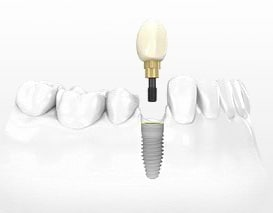White Mountain Dental Implant And Oral Surgery is a full-service dental practice offering comprehensive oral surgery services and a wide range of general dentistry treatments. With our team of highly skilled professionals, we can provide you with the highest quality dental care in a relaxed and comfortable environment.
White Mountain Oral Surgery North Conway Nh
At White Mountain Dental Implant and Oral Surgery Center, patient satisfaction is the priority. Along with our board-certified oral surgeon, Jonathan Williams, DMD, MD, our friendly and knowledgeable team provides the tailored and gentle oral surgery care you expect, with your comfort and safety in mind every step of the way. Dr. Williams is qualified to handle all aspects of your oral and maxillofacial care in the convenience of our North Conway, NH, practice, including dental implants, wisdom teeth removal, and corrective jaw surgery — and even expert cosmetic procedures such as Botox® and fillers. We can also diagnose and treat facial pain, facial and oral pathologies, facial injuries, and TMJ disorders, as well as perform a full range of bone grafting procedures.
Address: 3277 White Mountain Hwy, North Conway, New Hampshire, 03860-5113
Phone: (603) 356-9755
Fax: (603) 356-9754
Email: info@wmoralsurgery.com
Website: https://www.wmoralsurgery.com/
Description:
White Mountain Dental Implant and Oral Surgery Center offers every patient a comprehensive solution to their oral health problems, including treatments for: Dental Implants, Wisdom Teeth Extractions, Full-Arch Restoration, Jaw Surgery, and more. Jonathan Williams, DMD, MD is an oral and maxillofacial surgeon making him highly qualified to deliver a variety of surgical services to fit your needs.
List of Services:
Wisdom Teeth Removal
Dental Implants
Full-Arch Restoration
Jaw Surgery
Bone Grafting
Payment Methods:
Cash, Visa, Mastercard, American Express, Personal Check, Insurance, ATM / Debit, Financing Available
Business Hours:
Mon, Thu and Fri: 8:00 am – 4:30 pm
Tue and Wed: 9:00 am – 1:00 pm
Sat and Sun: Closed
Year Established: 2017
Number of Employees: 5
White Mountain Dental Implant and Oral Surgery Center
3277 White Mountain Hwy NORTH CONWAY, NH 03860

White Gum Around Dental Implant
No dental work, including dental implants, is completely permanent. They can last for many years if looked after well and maintained by both the patient and their dentist.
However, just like with your teeth, if your home dental care and oral hygiene is not kept at a high level and regular dental check-ups and maintenance care is not carried out, gum disease can occur around implants as well as teeth. In addition, where work may not have been carried out by an experienced professional, or upkeep wasn’t maintained, there can be issues.
If you read this blog and think you may be experiencing problems with previously fitted dental implants from another clinic, we’d be happy to help you rectify the issues and get your smile back at the Windsor Centre for Advanced Dentistry.
COULD I EXPERIENCE ANY EARLY STAGE ISSUES DURING HEALING?
Experiencing any issues with dental implants during the first stage after surgery is very rare, providing the implant placement has been well performed by an experienced and well-trained dental professional.
The main risk of early problems around implants is generally related more to normal post-surgical complications, such as infection, which is normally controlled through antibiotics or other medication.
WHAT LONG TERM DENTAL IMPLANT PROBLEMS MIGHT I EXPERIENCE?
At the Windsor Centre for Advanced Dentistry, we see an increasing number of patients who have had dental work carried out at other clinics or who have been abroad for dental tourism treatments, and have problems with or are dissatisfied with their dental implant treatment.
In many cases, the problems relate to the aesthetic outcome and gum shrinkage. Other issues may be more related to failure of the crown or bridgework supported by the implants or related to infection around the implants (peri-implantitis). In addition, low cost or budget implant systems and hardware, as used by many low cost implant practices, inevitably compromise on the quality, precision and manufacturing quality controls.
Secondly, many have little or no long-term research backing and rely on the research carried out by the premium brands. Here at the Windsor Centre for Advanced Dentistry we only use the premium brands (e.g. Nobel Biocare, Straumann and Dentsply Sirona) to ensure our patients receive the very highest quality components and treatment outcomes.
GUM RECESSION AND SHRINKAGE
This is a common dental implant problem, where there hasn’t been adequate management of the case to compensate for the shrinkage that occurs after tooth loss, or if the implant positioning and design of the crown or bridgework is not ideal. Often this leads to the implant supported tooth or teeth looking longer than the surrounding teeth and the gum line being much higher around the implants. It can also lead to darkening of the gums and shadowing created in the smile. Ideally, an implant restoration should look and match the patient’s teeth in both the tooth form and also the gum line so as to create a completely natural appearance.
The good news is that we can nearly always help in these situations. This usually means rebuilding the gum and bone around the implant with special gum and bone grafting techniques, but sometimes also means redoing some of the work, i.e. replacing the crowns or bridgework with a better design. In the worst case scenario, we would remove the old implant and redo the whole treatment. Our goal is to create a healthy and stable long-term result.
Implants placed at the front of the mouth are far more challenging than those placed at the back of the mouth, due to the importance of aesthetics. The optimum management of the gum tissue and bone is essential for the best long-term results.
Therefore, the expertise and experience of the dental team carrying out the treatment is the most important factor in achieving the best results.
PERI-IMPLANTITIS
Peri-implantitis is the name given to infection around an implant or implants.
This leads to inflammation in the gums, infection, bone loss and ultimately can lead to loss of the implant or implants if not treated early enough. In its early stages there are few symptoms and often patients are unaware of any problems. Peri-implantitis can only be picked up by a properly trained and experienced dentist and hygienist, emphasising the importance of regular check-ups and professional maintenance.
It can be caused by inadequate oral hygiene and maintenance, but smoking is also a significant contributing factor. Patient who have a history of gum disease (periodontal disease) and smokers are far more susceptible to peri-implantitis. Patients who don’t follow the maintenance strategy provided to them by their dentist, or don’t have a plan provided for long-term maintenance and care are at high risk of this infection.

WHAT ARE THE SIGNS TO LOOK OUT FOR?
Dental implant problems can be easily identified by a dentist or by patients themselves. Signs include:
- Swollen gums
- Gums bleeding easily
- Bad breath, or bad taste or smell in the mouth
- Shrinkage of the gum around the implant
- A dark or purplish colour of the gum around the implant
- Pus coming from the gums (white liquid) which seeps from the gum around the implant when the gum is pressed
- Loose or painful implants
HOW DO I PREVENT ISSUES WITH MY DENTAL IMPLANTS?
Firstly, prevention is always better than cure. If you need dental implants, make sure you have your implants fitted at a reputed dental surgery by a highly trained and experienced dentist who is also an expert in managing the soft tissue, bone and an expert in restorative dentistry. The dental team must also be experts in the maintenance of dental implants and treatment of peri-implantitis.
Once the implant treatment is complete, ensure you follow an optimum home dental care regime (you should be shown how to look after your dental implants well) and the professional maintenance schedule – check-ups and visits to a trained and equipped dental hygienist are crucial.
If you maintain your implants properly, and have had them fitted by an experienced dentist, you should be able to prevent many of the issues we’ve mentioned.
